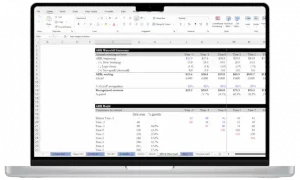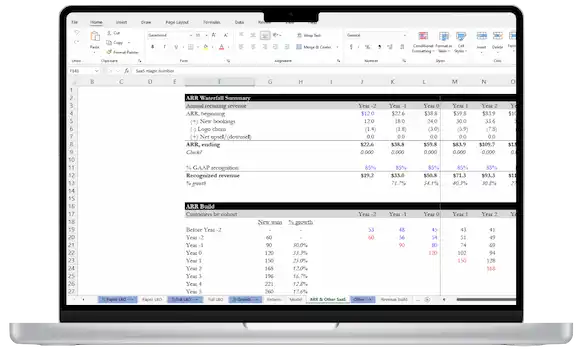Investment banking is an incredibly competitive field to interview for and work in.
Whether you’re aiming for a small boutique firm or a bulge-bracket firm, you’ll be competing for a position with dozens, or hundreds, of other possible applicants. In your investment banking interviews, your work ethic, hustle, and technical knowledge will be what sets you apart – and your passion for the work and people skills will be what sells the firm on YOU.
Most of the below investment banking interview questions are directed at candidates entering investment banking at the pre-MBA level. If you are entering investment banking after a few years working in another finance sector or post-MBA, you can expect a bit more technical questions than I cover here.
The first category of questions you can expect are basic “fit” questions.
Investment Banking Fit Questions
These questions are your generic interview questions, but they give you a really good chance to sell yourself. This is where your “soft” resume skills can show up well: work ethic, public speaking, and good old-fashioned hustle.
Walk me through your resume.
This is not supposed to be your full life history – your interviewer has already looked over your resume and knows what’s there. Keep it brief, and pull out specific items of interest.
If you’ve had some real finance experience – e.g. if you managed your finance club’s practice investment fund – talk about your results, the most interesting thing you learned, or some other important bit.
If the interviewer asks specific questions about resume items, feel free to go into more detail. If you have experience listed that isn’t specifically related to investment banking, be prepared to tie it to the specific job you’re interviewing for. For example, if you were a club or professional fraternity president, or a sports team captain, highlight the leadership experience you’ve gained and how it could help you on the job.
If you’ve done your research about the firm (and even the specific interviewer if you’re lucky) you can use this question to highlight specific things about your resume that would impress that person specifically. If you looked up your recruiter on LinkedIn before the interview, you might see items in their CV that can tie to yours – maybe they were in the same fraternity, or you both have a specific interest in international banking. Only do this if it’s genuine; it’s not something that can be forced.
Don’t be afraid to conduct this type of research ahead of time. To some degree, they’re doing it to you – you should feel free to find out more about them too. Just don’t divulge so much that you come across as creepy.
Why should we pick you?
Investment banking is so competitive that you have nothing to lose by giving a positive, confident pitch about yourself.
In your preparation, you should ask yourself “What (actually) sets you apart? What makes you unique?”
Create a one- or two-sentence description of yourself. Your tagline, your slogan, your elevator pitch; whatever you want to call it, it’s a powerful description of how you’re ready to bring value to the world.
And remember that the biggest thing they are looking for is work ethic and hustle so make sure you show in your pitch how passionate and excited you are for this job.
Why investment banking?
Recruiters want to know you’re serious about investment banking. Your answer to this question reveals a lot about why you’re sitting in that chair in the recruiter’s office.
Are you looking for an interesting, challenging career? Are you ready to work long hours?
Do you want a job with prestige and a big paycheck? (Hint: even if you do, don’t talk about that during your interviews).
If you’re going into investment banking because you hope to springboard to a different area of finance in a few years, like VC, growth equity, or private equity, that’s fine. It’s a very popular path for young finance professionals. However, the company you’re interviewing for now doesn’t want to know about your future plans to leave them! So don’t discuss this in your interviews.
Their main concern is that you will be a reliable, hardworking, creative employee – and stay long enough that you can be an asset to the company.
If you have a specific interest or life experience that has drawn you to investment banking as a career, feel free to give a more personal reason why it’s important to you – but again, it’s not the time for a long story.
For a deeper dive on why investment banking, check out this article.
What kind of work environment do you do well in?
Everyone is different, and every bank is different (or wants to think they are).
Interviewers are looking for candidates who thrive in a fast-paced, ambitious, and competitive environment. In your answer, make sure to back it up with examples from your past experience.
What are your hobbies?
This is a good opportunity to let your personal side show a bit.
Whether you like mountain climbing, oil painting, or something else, this is a nice way to show your employer that you are a well-rounded person with unique interests outside of work.
If your favorite hobby is truly reading the Wall Street Journal and keeping up with the stock market, absolutely say so – but you don’t have to pretend it is just for the sake of the job.
Keep the answer brief – this answer is likely not going to get you the job. So, answer succinctly and let them see a new side of you. Then move on.
Why This Bank?
To answer this question, do your research before the interview.
Show your interviewer that you’ve researched all the external facing information about the bank. For instance, what does the website say about the bank’s strategy? What did the CEO talk about on the recent earnings call?
This is also a good opportunity to show off any networking you’ve done. If you attended a campus event or spoke to a recruiter before interviewing, this is a good time to drop names and mention what you learned about the company. “I spoke to X at the Y event, and he told me about this company’s role in Z. I’m especially interested in Z, and am looking forward to working on Z- related projects in the next few years.”
If you have specific social ethics or values, you can mention how they line up with the company’s CSR or ESG goals – but this shouldn’t necessarily be the main reason you chose the firm. But don’t go overboard here, unless you’re specifically interviewing for an ESG role.
Investment Banking Behavioral Questions
I’m not going to go into a lot of detail on these. They’re pretty standard interview questions. Be prepared to answer them, but put most of your preparation into the technical and firm-specific questions.
- What’s the thing you’re most proud of?
- What is your biggest strength?
- What is your biggest weakness and how do you deal with it?
- How do you deal with stress?
- Tell me about a time you had to work extremely hard.
Investment Banking Technical Interview Questions
This is the real meat of an investment banking interview. Knowing the principles of finance and investing inside out will go further towards distinguishing you from other candidates than any discussion of your personal preferences.
What is the difference between equity value and enterprise value?
Equity value is a component of enterprise value.
The enterprise value is the full value of any business. Because many businesses have debt, part of this value will be attributable to NET DEBT, while the rest will be attributed to EQUITY.
Enterprise value = Equity + Net Debt
Investors who are interested in valuing or acquiring entire businesses are generally interested in enterprise value. If you are going into private equity where leverage is heavily emphasized as an acquisition strategy, you will certainly rely on enterprise valuation.
Think of it like the value of a home. The enterprise value is the price you sell your home for – let’s say $1 million. However, because you have a mortgage on the home with an outstanding balance of $300,000, then you only have $700,000 in equity value. This means when you sell for $1 million you would only get $700,000 in net proceeds (or equity) when you sell.
Same idea as enterprise value vs. equity value.

- 24 lessons
- 6+ video hours
- Expert instructor
ONLINE COURSE
Assess Business Models Like An Investor
Designed for aspiring private equity, growth, or venture investors
What is EBITDA, and why are EBITDA multiples sometimes preferred to P/E ratios?
EBITDA is earnings before interest, tax, depreciation, and amortization.
A company valuation based on EBITDA often reflects the true value of a company better than a P/E ratio for one important reason: it excludes capital structure and non-core factors from the company’s earnings.
Since Net Income includes so many one-off things that may not be reflective of the ongoing business activities, it can skew the company valuation’s valuation, which should only reflect going forward activities.
What are the main valuation methods for companies?
A few of the primary methods for companies are discounted cash flow (DCF), comparables or multiple analysis, and asset-based valuation.
Discounted cash flow is very common among investment bankers, as it gives the theoretical value of any company. It essentially calculates the value of the business by projecting forward its cash flows and then discounting them back to today’s date, using a discount rate. The downside of this method is that it relies on several assumptions and can be too theoretical to use in practice.
Comparable analysis compares the sale price or market valuation of the company in question to other similar companies in the market. There are two kinds of comparables – “trading” comps, which compares public companies, and “acquisition” comps, which compares M&A deals. The companies have to be similar in terms of industry, size and yearly earnings to be comparable in value. This valuation method is extremely common since it shows the actual market prices of real companies in the market, rather than some theoretical value as in the case of DCF.
Another form of valuation is called “replacement value.” If a company is being sold, one way to value it is by calculating the cost required to completely rebuild or duplicate the company. If a company wants to sell for $400 million, but buyers know they can rebuild its assets for just $50 million, this may constrain the valuation the company can achieve in its sale process.
Which has a higher cost of capital: debt or equity? Why?
Equity financing has a higher cost of capital than debt financing.
This is because the providers of the financing take on a greater risk in providing equity than they would in providing debt. They will demand a higher return on their money to compensate for the increased risk.
Companies have a legal requirement to pay back the debt they owe before the equity, and they must make debt payments before they pay dividends to shareholders. This offers a few benefits. First, it decreases the risk that they will default on the debt, creating the possibility of a lower cost of capital. Second, the interest the company will pay on that debt is usually tax-deductible, reducing their cost of capital by their corporate tax rate.
Equity financing has none of these benefits. The company has no legal obligation to pay shareholders. This alone creates more risk for the shareholders, and they will demand a higher return in exchange. Payments to shareholders are also not tax-deductible as interest on debt financing is. Because of this, even equity financing that provides the same rate of return as debt financing will always be more expensive to the company because of the tax rate.
Explain what net working capital is, and how it impacts cash flow.
Net working capital is the difference between a company’s current assets (excluding cash) and current liabilities (excluding current portion of long-term debt).
It shows two important things:
First, it shows how easily a company would be able to meet their current liabilities with their current assets, should they need to in an emergency.
Second, working capital can be a significant source (or use) of cash for the business in ongoing operations. Changes to the net working capital will increase or decrease the unlevered free cash flow of the firm.
Walk Me Through a DCF
This is another technical question, and one that requires slightly more preparation than the others.
The key here is preparation – the interviewer wants to see not only that you have the technical knowledge, but that you are mentally organized enough to discuss it fluently and intelligently.
To answer this question in an interview, follow a basic outline in your head that you can flesh out as you go. Something like this:
Define DCF: A DCF, or discounted cash flow model, shows the value of future cash flows from a company over a period of time, adjusted by a discount rate back to the present time period.
State the purpose of a DCF: The end goal of a DCF is to determine the theoretical enterprise value of a company . This gives potential investors a realistic idea of the value in the company independent of market forces. This is a solid anchor for valuation and pricing estimates.
Explain how a DCF works: Before you can find the discount part of a DCF, you have to find the cash flow part. You will need to project forward a cash flow statement to find free cash flow for the end of each period – usually five years. To do this, you will need the EBITDA and other financial metrics affecting cash besides EBITDA to get down to Free Cash Flow for each projected year (e.g. interest, working capital, taxes, capital expenditures, etc.). .
Once you have the ending free cash flow for each period, you need to calculate the discount rate in order to find the present value of each year’s cash flow. The discount rate is calculated by finding the WACC (weighted average cost of capital) for the company. This is a weighted average of the returns that debt and equity investors can expect from the deal. If the company is highly leveraged, the WACC will generally be lower than if it is financed with larger amounts of equity.
Now that you have the WACC and the free cash flow for each year, you then have to discount each year’s cash flow separately back to the present day, based on the WACC and the time period for each cash amount.
Finally, you’ll need to calculate the “terminal value” of the enterprise. This is the value of all cash flows that occur outside of the projection period (e.g. if the projection period is 5 years, then the terminal value is for year 6 and beyond). You can calculate this value either through a perpetual growth rate or by applying a valuation multiple to the FCF in that year. Likewise, you will then apply the discount rate to see the present day valuation of the terminal value.
Once you have all the present-day equivalents of the cash flows, you can add them all together to obtain an approximate company valuation.
Discuss pros and cons of a DCF:
- Pros: Assuming that the WACC and assumed growth rate are accurate, the DCF is one of the best ways to obtain a company valuation. It eliminates the impact of prevaling market forces.
- Cons: The Con is the same as the Pro: Market forces. While the DCF eliminates the impact of market forces outside the company’s control, these forces CAN and DO easily change the valuation of companies overnight in the real world. Also, the DCF relies on several assumptions (WACC, discount rate, etc.) that are theoretical and hard to justify.
How are the three main financial statements linked?
Like the last question, this is one that is best answered with a basic framework that you can build off of.
Describe the three main financial statements:
- Income statement: shows all revenue and expenses for the past fiscal period
- Balance sheet: shows all assets, liabilities, and equity at the end of the period
- Cash flow statement: translates the accrual accounting basis to actual cash on hand for the period
Describe how they impact each other:
The first statement you have to compile is the income statement. This shows all the revenue earned and expenses incurred.
The balance sheet, of course, is impacted by the income statement because net income (or loss) from the period flows through to retained earnings in the equity section of the balance sheet, where it can be distributed to owners and shareholders.
There are other income statement items that impact other balance items. A prominent example is depreciation & amortization and how it impacts the balance of PP&E on the balance sheet.
Finally, the cash flow statement pulls from both the income statement and the balance sheet. The cash flow statement ultimately measures the change in cash flow for the business. The change in cash is ultimately quite different from the income it earns, but this statement helps you track the differences. This statement starts with net income from the income statement, and then it will detail all non-cash items that are counted within net income (e.g. operating activities) or need to be included (e.g. investing or financing activities). Examples include capital expenditures from the balance sheet, and depreciation from the income statement.
Then, the change in cash flow measured on the cash flow statement is ultimately reflected back on the balance sheet!
To cross-check the ending cash balance on the balance sheet, you can check that the ending cash balance from the last period plus the current period’s cash from operations, investing, and financing (cash flow statement) are the same.
Investment Banking Case Study
Your investment banking interview may include a case study. While this is more common in sectors like private equity or growth equity, you may also see it here, especially at interviews above entry-level positions.
In general, though, investment bankers prefer to test your knowledge with technical questions and follow-ups like the information in this article, rather than actual assignments.
Private equity interviews may include a detailed take-home case study or in-person valuation model.
The most common case study you’ll see in an investment banking interview process would be a very light DCF model with little complexity. This is something you might only see at a very small boutique firm, and won’t see at all at larger firms or bulge-bracket banks – they simply don’t have the time or capacity to review case studies on a large scale.
If you’re going into investment banking as a step to a future career in private or growth equity, the case study is a good thing to remember for the future, but you most likely won’t need to deal with it now.
Questions To Ask Your Investment Banking Interviewer
This is a good time to ask any questions you may have about company culture or specific answers to questions you may have thought of that you couldn’t find on the website.
If you did some networking before the interview, you can mention any questions you didn’t get to ask in your networking conversations. “I really enjoyed speaking with X about the work this bank is doing with Y. I’d love to know more about that project.”
This isn’t the time to appear self-interested in working hours or salary. Think of it as the flip side of the interviewer’s “why should we hire you?” question. Now you get to ask questions to see if you are a good personality and work style fit for the company. You can also ask your interviewer more personal questions.
“What is your favorite part about working for X?”
“What were your first couple years working for X bank like? Is that a similar experience to what new hires now can expect?”
Preparing for a big career interview like investment banking can be a bit nerve-wracking if you haven’t done many like it before. Don’t worry – you’ll get over it quickly. Practice in front of a mirror, or record yourself giving confident answers. Investment banking is a rewarding, lucrative career, and you’re ready to do what it takes to get you there.
Conclusion
Preparing for an investment banking interview requires a thorough understanding of the various types of questions that may be asked, such as fit, behavioral, and technical inquiries.
It is critical to conduct research on the bank you are interviewing with and be able to articulate why you want to work for them.
Technical questions, such as walking through a DCF and understanding the relationship between financial statements, must also be mastered. Furthermore, practicing investment banking case studies and preparing thoughtful interview questions can help you stand out and make a good impression.
You will be better prepared to succeed in your investment banking interview (including your HireVue interview) and land your dream job if you follow this guide.


 Break Into Growth Equity
Break Into Growth Equity

